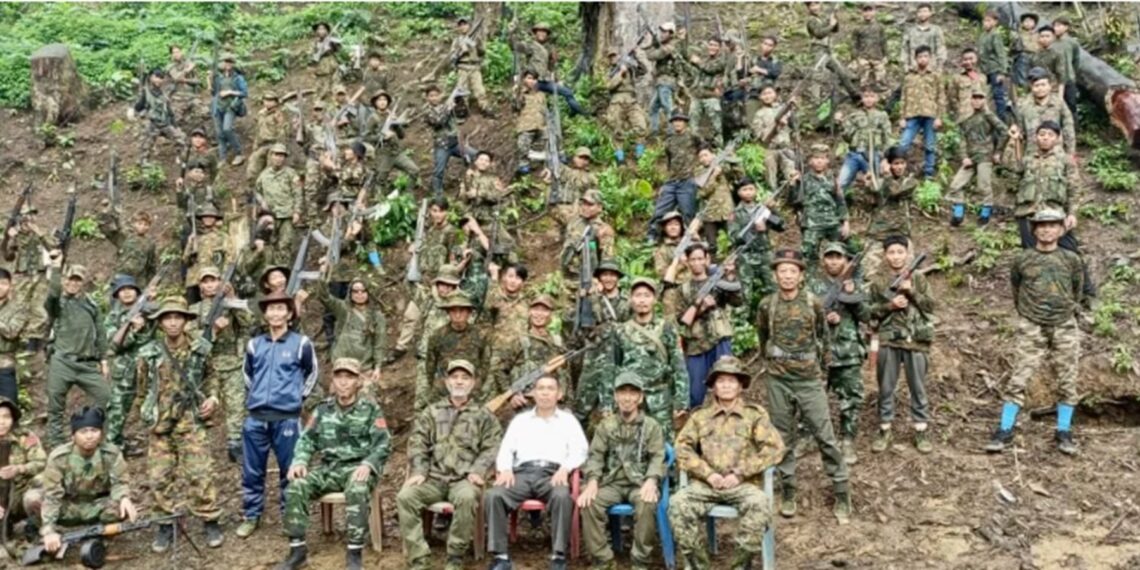KOHIMA: The Ang Mai-led faction of the National Socialist Council of Nagaland (NSCN-K) has announced its intention to commence formal peace dialogues with both India and Myanmar.
This decision, the outfit stresses, is “not a sign of weakness but a proactive step towards achieving peace”, prosperity, and development in the Naga inhabited regions.
In a statement issued on Thursday, signed by NSCN (K) Chairman Maj Gen (Rtd) Ang Mai, Vice-Chairman Nyeiton Konyak, and General Secretary Kughalu Mulatonu, the outfit outlined its strong caveats for the peace dialogues.
They affirmed that any political dialogue with India would solely focus on sovereignty or any arrangement beyond the Indian Constitution.
Additionally, temporary arrangements must adhere to standards above the established framework and agreed positions.
Furthermore, the NSCN (K) made it clear that they will not align themselves with any non-governmental organisations, civil society groups, or political entities.
They assert their role as the sole guardians of Naga sovereignty, highlighting the importance of serving Naga nationalism above all else.
This statement comes in response to what the NSCN (K) describes as “stormy political factionalism among the Nagas and disillusionment brought about by the bilateral talks with the Government of India by the parties involved in talks”.
Providing context to their stance, the NSCN (K) referenced the Shillong Accord of November 11, 1975, where the Naga National Council (NNC) surrendered to India.
They highlight the principles of self-sufficiency, socialism, and Nagaland for Christ as foundational to Naga nationalism, alongside the Khaplang Plan of 1997, highlighting forgiveness and unity.
Moving forward, the NSCN (K) affirms its commitment to spreading the ideals of Nagaland for Christ throughout Naga-inhabited areas, with active involvement from the NSCN and its Council of Naga Churches (CNC).
Despite past conflicts, the NSCN (K) stresses that the Nagas have always maintained an open-door policy towards their neighbours and are prepared to fulfil their moral responsibility.
This announcement marks a potentially significant step towards lasting peace in the region, as various stakeholders navigate complex political dynamics and historical grievances.















